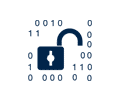If You or a Loved One Has Been Charged With Fraud in Chicago – Chicago Fraud Attorney Andrew M. Weisberg Can Help
Facing a fraud charge in Chicago can be overwhelming and intimidating. Fraud, a type of white-collar crime, involves intentionally deceiving others for personal gain or to cause harm. These charges are taken seriously in Illinois, and convictions can lead to severe consequences, including lengthy prison sentences, hefty fines, and a permanent criminal record. If you or a loved one has been accused of fraud, it is crucial to act quickly and seek the guidance of an experienced Chicago fraud attorney like Andrew M. Weisberg.
Understanding Fraud Charges in Illinois
Fraud is a broad term encompassing various offenses that involve deceit, misrepresentation, or dishonesty for financial gain. Illinois law does not typically label these offenses under the umbrella of “fraud.” Instead, most fraud-related crimes are prosecuted under specific statutes such as theft, forgery, or identity theft. The severity of the charges and potential penalties depend on the nature of the fraud, the amount involved, and the defendant’s criminal history.
Types of Fraud Charges
Here are some of the most common types of fraud charges that can be filed in Illinois:
Theft by Deception (720 ILCS 5/16-1)
Theft by deception occurs when a person knowingly obtains control over someone else’s property by deception, with the intent to permanently deprive the owner of the property. This can include schemes like falsifying information or tricking someone into transferring money or property. The severity of the charge depends on the value of the property stolen:
- Less than $500: Class A misdemeanor (up to 1 year in jail and fines up to $2,500).
- $500 to $10,000: Class 3 felony (2 to 5 years in prison).
- $10,000 to $100,000: Class 2 felony (3 to 7 years in prison).
- Over $100,000: Class 1 felony (4 to 15 years in prison).
Identity Theft (720 ILCS 5/16-30)
Identity theft involves using someone else’s personal information without their permission to commit fraud or other crimes. This can include using someone’s credit card, Social Security number, or other identifying information. Penalties for identity theft vary based on the financial harm caused:
- $300 or less: Class 4 felony (1 to 3 years in prison).
- $300 to $2,000: Class 3 felony (2 to 5 years in prison).
- $2,000 to $10,000: Class 2 felony (3 to 7 years in prison).
- $10,000 to $100,000: Class 1 felony (4 to 15 years in prison).
- Over $100,000: Class X felony (6 to 30 years in prison).
Forgery (720 ILCS 5/17-3)
Forgery involves creating, altering, or using a document with the intent to defraud. This can include signing someone else’s name on a check, creating fake identification documents, or altering a contract. The penalties for forgery are severe:
- Class 3 felony: Punishable by 2 to 5 years in prison, with fines up to $25,000.
Credit Card Fraud (720 ILCS 5/17-36)
Credit card fraud includes using someone else’s credit or debit card without their permission, or using a fake card to obtain money or goods. Penalties for credit card fraud can range from a Class A misdemeanor to a Class 3 felony, depending on the amount of money involved and the circumstances of the case.
Mail Fraud (18 U.S.C. § 1341) and Wire Fraud (18 U.S.C. § 1343)
While typically prosecuted at the federal level, mail and wire fraud charges can arise in Illinois. These offenses involve using the mail or electronic communications to carry out a scheme to defraud someone of money or property. Federal penalties can be extremely harsh, with sentences up to 20 years in federal prison for each count.
Consequences of a Fraud Conviction
A fraud conviction in Illinois carries severe consequences that extend beyond the criminal penalties. In addition to facing jail or prison time, heavy fines, and restitution payments, individuals convicted of fraud will have a permanent criminal record. This record can severely impact one’s ability to secure employment, housing, or professional licenses, and can result in a loss of reputation and social standing.
For example, a conviction for fraud-related offenses like theft by deception or identity theft can result in:
- Difficulty Finding Employment: Many employers conduct background checks, and a fraud conviction can make it difficult to secure a job.
- Loss of Professional Licenses: Certain professions, such as those in finance or healthcare, may revoke your professional license if you are convicted of a fraud-related crime.
- Damage to Personal Relationships: A fraud conviction can strain personal and family relationships, leading to a loss of trust and social isolation.
How Chicago Fraud Attorney Andrew M. Weisberg Can Help
Facing fraud charges is a serious matter, and the consequences of a conviction can be life-altering. That is why it is critical to have an experienced and dedicated criminal defense attorney on your side. Andrew M. Weisberg is a seasoned Chicago fraud defense lawyer who has successfully defended clients against a wide range of fraud charges. He understands the complexities of Illinois fraud laws and knows how to build a strong defense strategy tailored to your specific case.
What to Expect During Your Free Consultation
During your free consultation with Andrew M. Weisberg, you can expect:
- A Thorough Case Evaluation: Mr. Weisberg will carefully review the details of your case, including the evidence against you, to determine the best defense strategy.
- Clear Explanation of Your Rights: You will be informed of your legal rights, including your right to remain silent and your right to testify on your behalf.
- Expert Legal Advice: Mr. Weisberg will provide you with expert advice on how to proceed with your case, including whether to negotiate a plea deal or take your case to trial.
- Aggressive Defense: If you choose to retain Mr. Weisberg’s services, he will aggressively defend your rights in court and work tirelessly to achieve the best possible outcome for your case.
Contact Andrew M. Weisberg Today
If you or a loved one has been charged with fraud in Chicago or the surrounding areas, do not wait to seek legal representation. Contact Chicago fraud attorney Andrew M. Weisberg today to schedule a free consultation. Mr. Weisberg is committed to providing his clients with the best possible defense and is available to take your call 24/7.
To reach Mr. Weisberg directly, call his cell phone at (773) 908-9811, or fill out the case review form on our website. The consultation is free, and Mr. Weisberg will provide you with the strong defense you need to protect your future.





















































